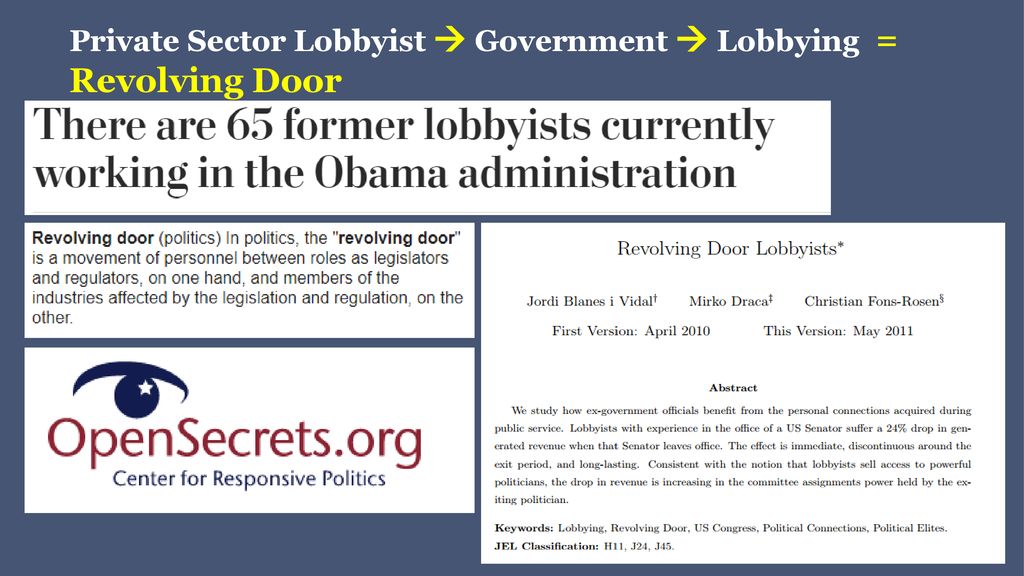


Here again, these movements can happen for various reasons: a nomination to a political position, success at the European Personnel Selection Office (EPSO) competition, recruitment as a temporary agent, or returning to the EU administration after a leave on personal grounds. For a temporary agent (hired on a contractual basis for a limited time), the end of a contract may lead to looking for jobs in the private sector.īut the revolving door also encompasses movements from the private to the public sector.For an official, a new recruitment may take place because of retirement, resignation or a leave on personal grounds.For a politician, the end of a mandate may lead to a recruitment by a private sector company.
REVOLVING DOOR POLITICS DEFINITION PROFESSIONAL
At the European level, a professional from the public sector moves to the private sector for various reasons: Tackling the revolving doors in the EUĪs a term, the revolving door refers to movements between the public and the private sector. The EU cannot devise better policies unless more is known about the phenomenon. The gaps and ineffectiveness of EU policies to address revolving door moves stem from a limited understanding of the issue, which in turn is a result of lack of research and interest. The new Ethics Body, however, is not the regulatory unicorn many are hoping for. Replacing the current Independent Ethical Committee, the new body would be responsible for proposing and advising Commissioners, MEPs and staff of the institutions on ethics rules. In September 2021, MEPs voted in favour of a new EU Ethics body to oversee movements of personnel between the public and the private sector and proposed an interinstitutional agreement to this end.


 0 kommentar(er)
0 kommentar(er)
